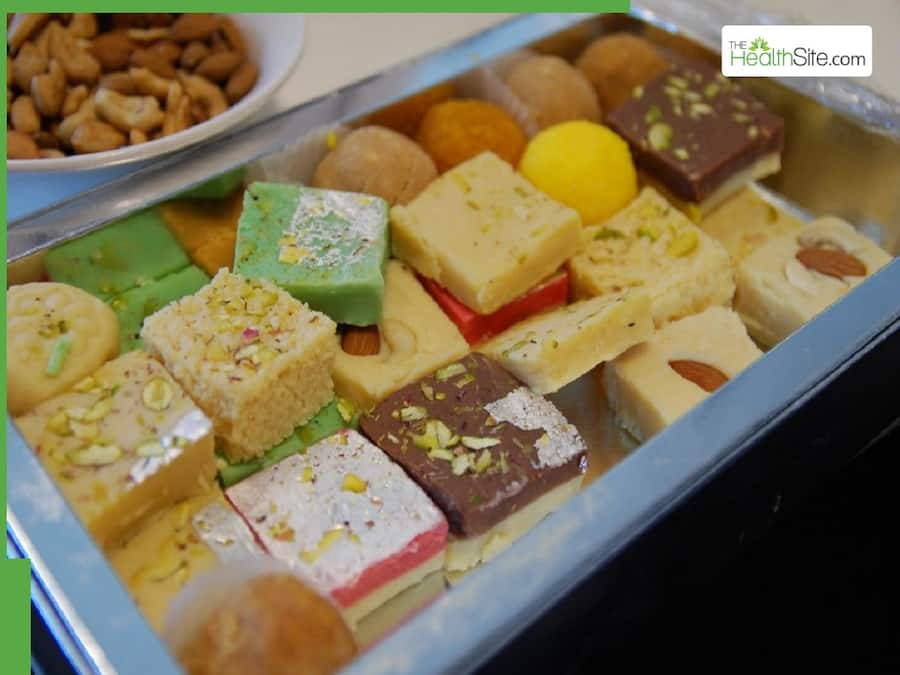Busy plans and nutritious portions establish a method for investing joy into Diwali without making one’s body cry in protest.

Diwali is said to be the festival of lights, with gaiety, community, and lovely sweets. At the same time, this festival of lavish feasts and conventional goodies fuels an increasing trend for caloric intake, leading to obesity issues.
Understanding how indulgence during the festival can affect one’s health would lead people toward the proper food selection:
- Calorie Load of Traditional Sweets in Diets: Some sweets, such as laddoos, barfis, gulab jamuns, and kheer, are always preparations. Generally, sweets are high in sugar and fat, increasing calorie intake significantly. A simple gulab jamun can amount to 150-200 calories, most of which would be sugars and saturated fats. Though such amounts may be acceptable as part of an otherwise balanced diet, the problem comes when portions exceed the body’s needs. Overconsumption of sweets during Diwali is more directly a cause of overconsumption of calories, fats, and sugars that make a person gain weight. Repeating this frequently for several years makes a person increasingly susceptible to chronic health problems. Knowing those sweets that cause all these health issues during the celebration is thus necessary.
- Ingredients in Sweets and Their Contribution to Weight Management: Ghee, sugar, condensed milk, and refined flour are staples of Indian sweets. Though ghee is an excellent source of fat-soluble vitamins, it is calorific; one tablespoon contains about 120 calories. The day’s caloric recommendations can be easily crossed if more sugar-laden ghee-based sweets are consumed. Refined sugars are one of the biggest causes of weight gain because they cause an insulin surge, forcing the body to work much harder to stabilize blood sugar levels. Similarly, using refined flour, such as maida, escalates the glycemic load in sweets and boosts the capacity for weight gain and all the associated metabolic disorders.
- The Psychological Aspect of Indulgence in Celebratory Foods: People prefer things they avoid because of culture and emotional attachment. Diwali festivals bring in emotions of happiness, bonding with family and nostalgia. Social gatherings make people feel obligated to eat more, especially when many sweets are available.
Conclusion
Now, more and more evidence is coming up about health hazards connected with indulgence over the festival obesity, and diabetes are the only two results that seem to creep in along with each precious morsel. Then there are the high-calorie-rich ingredients of homemade sweets, which have been a significant concern for a long time. But busy schedules, healthy portions, and diligent lifestyles may yet prove a way to infuse gaiety into Diwali without making one’s body scream in protest.






